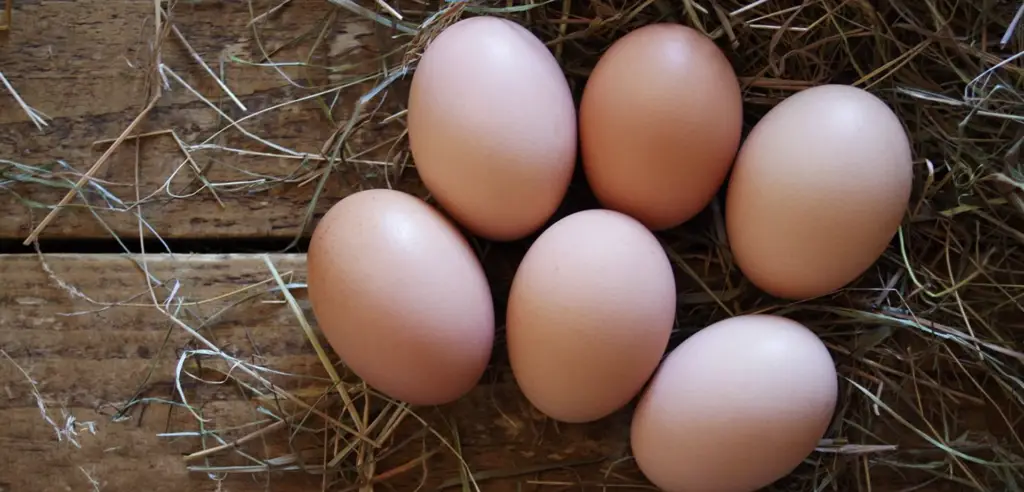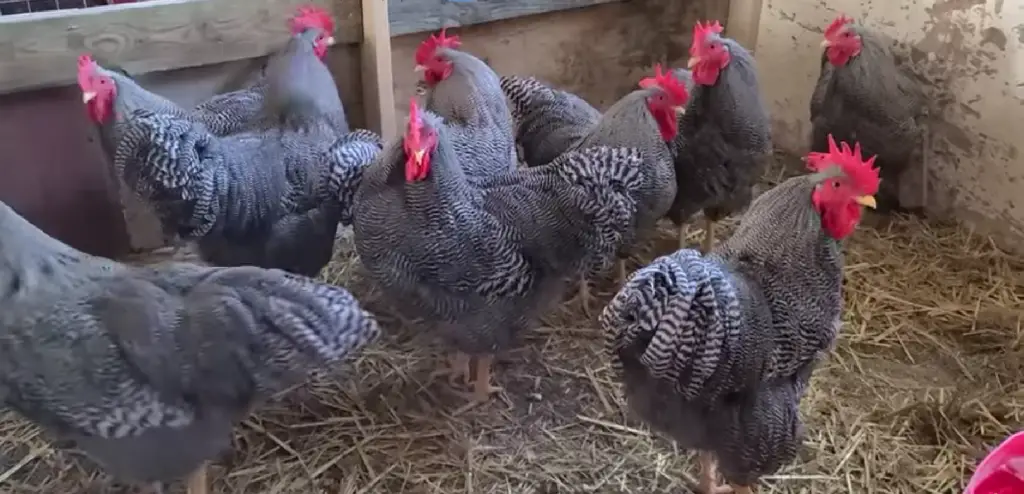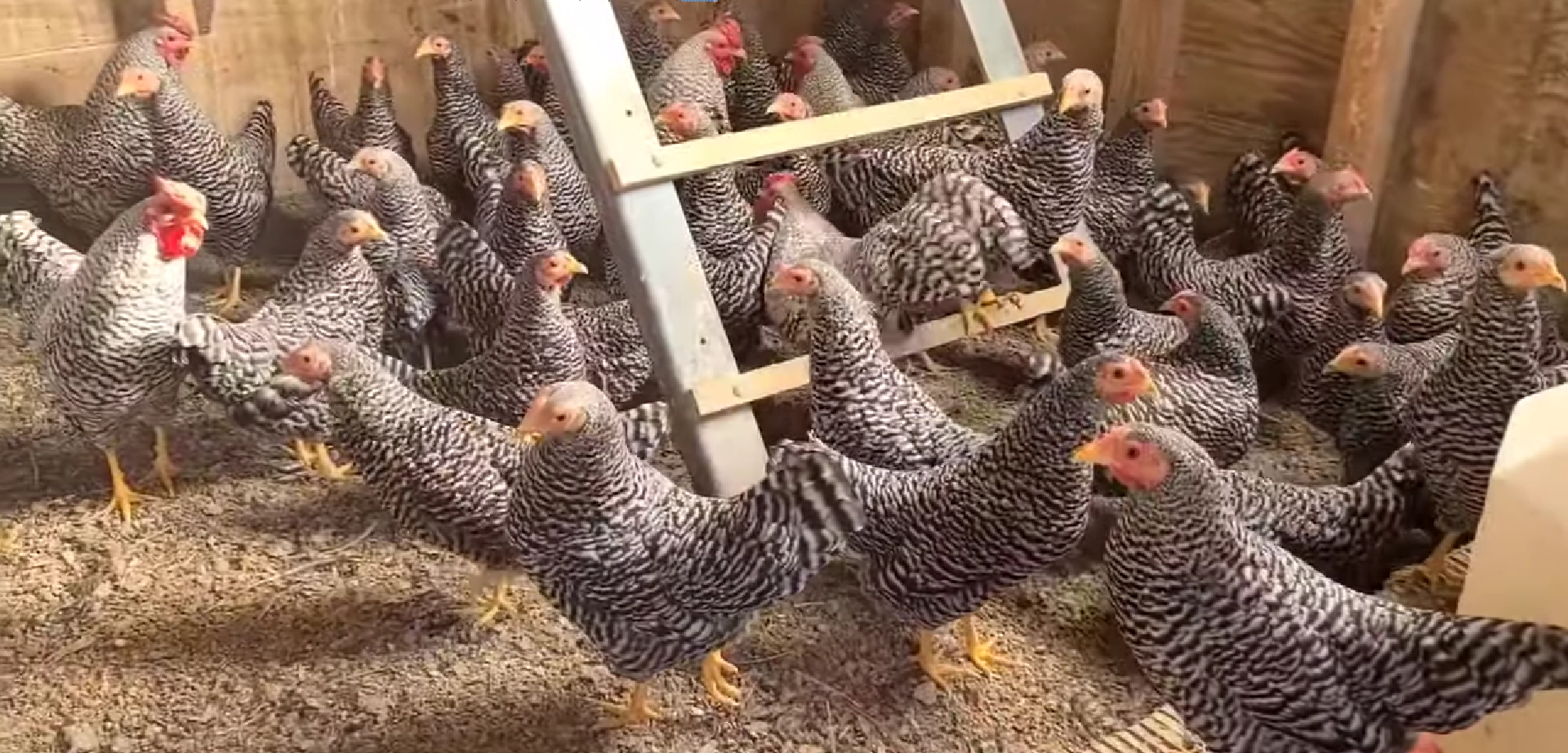Plymouth Rock chickens are considered to be good layers, although their egg production varies depending on various factors such as age, diet, and environment. A healthy Plymouth Rock chicken can lay around 200 to 280 large brown eggs per year, with an average of around 4-5 eggs per week.
One of the benefits of Plymouth Rock chickens is their ability to continue laying eggs during the winter months, unlike some other breeds that may stop laying altogether. They are also known for being reliable and consistent layers throughout their lifespan, which can be up to 8 years.

Do Plymouth rock chickens lay good eggs?
Aside from their egg-laying abilities, Plymouth Rock chickens similar to the French Bresse are also valued for their meat, which is considered to be flavorful and tender. Additionally, they are hardy and adaptable to a wide range of environments, making them a good choice for those living in different climates.
In conclusion, Plymouth Rock chickens are good layers that can provide a steady supply of eggs for both personal and commercial use. They are a versatile breed that is suitable for backyard chicken keeping, small-scale farming, and larger commercial operations.

What is a Plymouth rock chicken best known for?
The Plymouth Rock chicken is a popular breed of chicken that was first developed in the United States in the mid-1800s. Named for the town of Plymouth, Massachusetts, these chickens were bred to be hardy, productive layers that could thrive in a variety of climates.
Plymouth Rock chickens are medium to large in size, typically weighing between 6 and 8 pounds. They have a distinctive black and white striped pattern, with black and white feathers on their bodies and wings, and a white or yellow head and neck. They are known for their docile and friendly temperament, making them a popular choice for backyard chicken keepers and small-scale farmers.
In addition to their pleasant demeanor, Plymouth Rock chickens are highly valued for their egg-laying abilities. They are known to be productive layers, capable of laying up to 280 large, brown eggs per year. Their eggs are highly nutritious and flavorful, with a rich, creamy yolk and a firm, flavorful white. Plymouth Rock chickens are also prized for their meat, which is firm and flavorful, with a relatively high-fat content that adds to the taste and texture. They are often used in commercial meat production but are also popular among small-scale farmers and backyard chicken keepers who appreciate their meat quality and docile nature.
Overall, the Plymouth Rock chicken is a versatile and highly-regarded breed of chicken that is prized for its productivity, temperament, and meat and egg quality. Whether you are looking to raise chickens for meat, eggs, or simply as pets, Plymouth Rock is an excellent choice that is sure to provide years of enjoyment and productivity.
Are Plymouth rock chickens loud?
Plymouth Rock chickens are generally not considered to be particularly loud or noisy. They are known for being friendly, calm, and easy to handle, and their vocalizations tend to be relatively low-pitched and gentle. However, like all chickens, they will make some noise throughout the day, especially when they lay eggs, communicate with other chickens, or sense a predator.

Some of our articles may contain affiliate links, which means I earn a small commission at no extra cost to you but it does help me with the running costs. As an amazon associate, I will earn commissions on purchases but this does not affect my reviews on products or services.
Additionally, roosters tend to be louder than hens and will crow to establish their dominance and communicate with their flock. So while Plymouth Rock chickens are not generally considered to be loud, there is some variation in individual behavior and vocalization between different birds.
What color are Plymouth rock chickens?
Plymouth Rock chickens are typically black and white in color, with a barred pattern. The white feathers are broad and evenly spaced, while the black feathers are narrow and striped. This gives the chicken a distinctive appearance with a black and white checkered pattern. However, there are other color varieties of Plymouth Rock chickens as well, including blue, buff, and silver-penciled. These varieties have different color patterns and are less commonly seen than the traditional black-and-white Plymouth Rock.
Are Plymouth rocks good backyard chickens?
Yes, Plymouth Rock chickens are generally considered to be good backyard chickens. They are a hardy breed that can tolerate a wide range of temperatures and are known for being calm, friendly, and easy to handle. Plymouth Rocks are also good layers, with hens laying around 200-280 large brown eggs per year. Additionally, they are good foragers and can help keep your backyard free of pests like insects and weeds.
Plymouth Rock chickens are also relatively quiet, which can be an important consideration for backyard chicken keepers. They are not known for being particularly noisy or disruptive and are unlikely to disturb neighbors. Overall, Plymouth Rock chickens are a great choice for backyard chicken keeping and are a popular breed among both novice and experienced chicken keepers.
Can Plymouth rock chickens fly?
Yes, Plymouth Rock chickens are able to fly to some extent, but they are not known for being strong or frequent fliers. They have a relatively heavy bodies and are not as light or nimble as some other breeds, which can make flying more difficult for them. However, they are capable of short bursts of flight and can fly up to a few feet in order to escape predators or reach a high roosting spot.
It’s worth noting that even though Plymouth Rock chickens can fly, they are typically kept in enclosed coops or runs to protect them from predators and to prevent them from wandering into unwanted areas. If you plan to keep Plymouth Rock chickens, it’s important to provide them with a secure and appropriately sized living space that allows them to move around freely and comfortably.
Related posts:
- How to Make the Best Homemade White Wine with Fresh Grapes

- Cheddar gorge I was only expecting to find a cheese factory…

- Discover the Top 5 Worst Beaches to Visit in the World

- Fontwell Park: A Thrilling Day at the Races

- Explore Arundel’s Medieval Castle and Cathedral is it worth a visit?

- Greenwich Town Welcomes Rupert & Teddy, Restaurant, Bar & Deli


